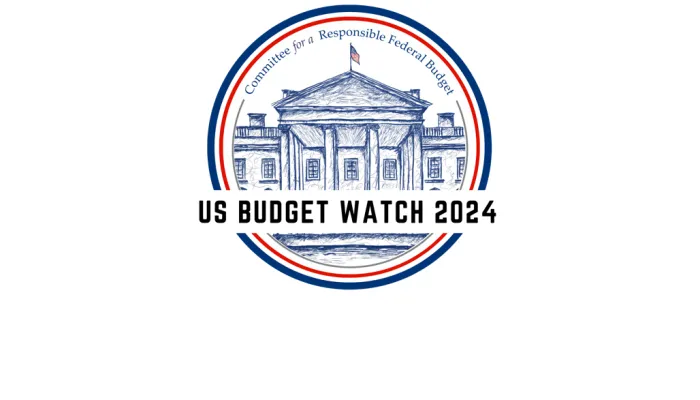Mike Pence's Plan to End Inflation
Last week, former Vice President and current GOP Presidential candidate Mike Pence released a multi-part plan meant to combat inflation by cutting government spending and wasteful programs. According to our preliminary estimate, this plan would save $730 billion to $1.05 trillion over ten years.
US Budget Watch 2024 is a project of the nonpartisan Committee for a Responsible Federal Budget designed to educate the public on the fiscal impact of presidential candidates’ proposals and platforms. Through the election, we will issue policy explainers, fact checks, budget scores, and other analyses. We do not support or oppose any candidate for public office.
Vice President Pence's plan would:
- Freeze nondefense discretionary spending for a year (analyzed here), while government agencies undergo an audit
- Repeal President Biden's student loan forgiveness plan, which the Supreme Court ruled illegal, but the Administration has pledged to re-introduce
- Reduce improper payments, which totaled $247 billion in 2022
- Eliminate the Environmental Protection Agency and the Consumer Financial Protection Bureau
- Rescind funding for the IRS from the Inflation Reduction Act
- Rescind Amtrak funding from the Bipartisan Infrastructure Law
- End Inflation Reduction Act tax credits for advanced manufacturing, electric vehicles and green retrofitting of existing homes
In total, our preliminary estimate suggests this plan would save roughly $730 billion from fiscal year (FY) 2026 through 2035 relative to current law, and $1.05 trillion over that period if President Biden reinstates his student debt cancellation plan. Our figures are somewhat lower than the Pence campaign's estimate of $1.2 trillion, in part because we account for the revenue losses from reduced IRS funding and assume improper payments could be reduced modestly, but not eliminated entirely or dramatically cut. We also rely on newer estimates and a later budget window, which in many cases increases our estimates relative to the Pence campaign's.
Estimated Savings from Vice President Pence's Plan to End Inflation
| Proposal | Ten-Year Savings Estimate (FY '26-'35) |
|---|---|
| Repeal President Biden's Student Loan Forgiveness Plan | $0 / $320 billion^ |
| Reduce Improper Payments | $100 billion* |
| Eliminate the Environmental Protection Agency | $290 billion |
| Freeze Nondefense Discretionary Spending for One Year | $160 billion |
| Rescind IRS Funding from IRA | -$100 billion' |
| Rescind Amtrak Funding from Bipartisan Infrastructure Law | $50 billion |
| Repeal Advanced Manufacturing Production Credit | $100 billion |
| Cut the Residential Clean Energy Credit | $20 billion |
| Eliminate Tax Credits for Purchase of Electric Vehicles | $100 billion |
| Eliminate the Consumer Financial Protection Bureau | $10 billion |
| Total | $730 billion / $1.05 trillion |
Sources: Committee for a Responsible Federal Budget, Congressional Budget Office, Joint Committee on Taxation, Office of Management and Budget. Numbers are rounded.
^ On June 30th, 2023, the United States Supreme Court issued a ruling in Biden v. Nebraska that effectively ended President Biden's student loan cancellation plan, therefore repealing the plan would save no money relative to current law. However, the White House has indicated a desire to re-introduce its plan through an alternative legal authority. If this occurs, repealing the plan would save roughly $320 billion.
* The Pence Campaign does not provide details as to how they would reduce improper payments, nor do they give an estimate for potential savings. Instead, they cite a Government Accountability Office study from March of 2023, which estimated the total amount of improper payments across the federal government in 2022 to be $247 billion. We believe an aggressive effort to reduce improper payments could result in as much as $100 billion in savings over ten years, though even this estimate is on the higher end. For example, President Trump's FY 2020 budget proposed an aggressive effort at reducing improper payments that fell well short of this target. Without additional details, we cannot provide a more accurate estimate.
`Although this policy would reduce spending by roughly $70 billion, it would also weaken tax enforcement and thus reduce revenue collection. On net, we estimate it would add about $100 billion to the deficit.
*****
Throughout the 2024 presidential election cycle, US Budget Watch 2024 will bring information and accountability to the campaign by analyzing candidates’ proposals, fact-checking their claims, and scoring the fiscal cost of their agendas.
By injecting an impartial, fact-based approach into the national conversation, US Budget Watch 2024 will help voters better understand the nuances of the candidates’ policy proposals and what they would mean for the country’s economic and fiscal future.
You can find more US Budget Watch 2024 content here.
